CBD for Anxiety
Muscle tension, rapid breathing, sweating, incessant thoughts, and a pounding heart. These are but a few symptoms of anxiety.
Anxiety, on its own, is a pretty normal feeling. It is the body’s reaction to stress, and it’s supposed to go away after the stress factor is resolved. Most people will eventually encounter or experience a form of anxiety at some point in their lives.
Sometimes, the anxious feeling doesn’t leave, which can then qualify as an anxiety disorder, especially if it starts to heavily impact our daily life. According to the World Health Organization (WHO), about 1 in 13 people have an anxiety disorder. This means that anxiety disorders are now the most prevalent mental health disorder in the world, edging out depression.
There are many ways to treat or relieve the symptoms of anxiety (disorder or otherwise). Most people opt for therapy or medication. But these medications can often come with unpleasant side effects including headache, loss of appetite, and nausea. More importantly, it can also be followed by a dependency on the said medications, so people try to look for better alternative treatments.
One such treatment that is currently on the rise is the use of CBD products.
What is CBD?
Before delving any further into the subject, first let us define what CBD is, mostly to correct any misconceptions.
CBD, also known as cannabidiol, is a word often associated with marijuana. Most people assume that it means using CBD is equivalent to getting high, but this assumption is not true. CBD is not synonymous with marijuana or even to THC (tetrahydrocannabinol). It is simply a cannabinoid compound that can be derived from cannabis plants, including marijuana and hemp.
CBD extracted from marijuana might be laced with THC, the main psychoactive compound that causes the high of marijuana use. Because of this, most manufacturers prefer hemp-derived CBD, both to avoid psychoactive effects, as well as to adhere to the usual restrictions of 0.3% THC maximum content in their products.
Researches conducted on CBD use has shown that it does not pose any dependency or addiction risk factors, which makes it a good alternative for those who are trying to wean off of their current medication. In a 2017 survey, 41% of respondents said they prefer cannabis over their prescribed medications, with 40% saying it was more effective than their medicine. Having said that, please be advised that suddenly ceasing the use of prescribed medication must be discussed with one’s therapist, and it is to be expected that side effects and withdrawal symptoms may follow.
Using CBD for Anxiety
One of the factors that lead to the study of the effects of CBD on anxiety is the observation that those with anxiety disorders are more likely to smoke marijuana (Stoner, 2017). CBD induces a feeling of calm when used, as well as a list of other beneficial effects that help control or relieve anxiety. It certainly makes sense why people thought of using cannabidiol to treat anxiety in the first place. A lot of studies have since been made to understand the effects of CBD on anxiety.
According to the National Institute on Drug Abuse (NIDA), CBD tests have shown to reduce feelings of stress in subjects. These tests showed less physical evidence of anxiety in the test subjects, such as the steadying of heart rates and less rapid palpitations (Volkow, 2015).
There are many different forms of anxiety and anxiety disorders, most of which have proven to benefit from the effects of CBD.
PTSD and CBD
CBD shows evidence for helping in sleeping problems, which in turn makes it beneficial for those who suffer from post-traumatic stress disorder (PTSD). Multiple recent studies show that the use of CBD aids in alleviating PTSD symptoms such as the recurring nightmares and persistent thoughts regarding traumatic events
In a 2018 study by Bitencourt and Takahashi, cannabinoid administered immediately after a traumatic event intervened with memory retrieval regarding the trauma, however doing so is not advised as not all exposed to the event will develop PTSD. Waiting after a psychological intervention attempt is preferred. The same process of memory interference is still in play when using CBD for later PTSD treatment. It is especially helpful when partnered with appropriate cognitive behavioral treatment (CBT).
SAD and PTSD
Another form of anxiety targeted by CBD researches is social anxiety disorder or SAD. CBD has naturally calming effects on the body which greatly benefits those who suffer from SAD, allowing them to function as normally as possible. It reportedly induces the same effects that some anxiety medications have.
A double-blind study in Japan was done with 37 people receiving either 300 mg of CBD oil or a placebo. In the survey assessment following this, those who received the CBD oil reported relief from their SAD symptoms. In a positive turn of events, some of the respondents who received CBD sought out professional treatment after the study (Masataka, 2019).
CBD Products for Anxiety
There are many CBD products on the market today, with a substantial amount targeted towards those who suffer from anxiety. It is important for consumers to know what they are buying, and if those products are what they’re advertised to be. To do this, it is vital to research the company and products, as well as to read the product labels, especially since a 2017 study found that about 70% of online CBD products were inaccurately advertised (Bonn-Miller, et al., 2017). Even the National Organization for the Reform of Marijuana Laws (NORML) says that few commercial CBD products have the appropriate CBD content needed for optimum benefits, so one would do well in heeding this advice.
With all said and done, here are a few forms of CBD products on the market:
-
CBD Oil – depending on the item, it can also be used as a tincture. CBD oils are typically used by applying it onto the skin, much like a moisturizer or massage oil. Users claim to feel calm and soothed after application, along with the bonus of having softer skin.
-
CBD Patch – think of this like a nicotine patch. It can be used for prolonged periods and can soothe tension and relieve anxiety. Patches usually only carry a very small dose of CBD (10 mg).
-
CBD Capsule – this method is the most precise way of consuming specific dosages of CBD (typically 30 mg).
-
CBD Snacks – these snacks can come in many different forms, the most popular of which are gummies (bears, fruits, etc.) These mostly function as vitamins, as most products are mixed with other typical vitamin minerals. Users report experiencing better stress regulation after consumption.
Needing Further Research
The use of CBD for treating different forms of anxiety is still considerably new, therefore further research is needed to ensure its effects and benefits on individuals, particularly regarding its long-term effects. That said, there are plenty of current studies that do point towards its great help for those who suffer from anxiety and other illnesses.
Much like with all other substances, individuals must beware of moderated use of CBD. It is also important to remember that CBD use as an alternative or supplemental treatment for anxiety is best discussed with one’s healthcare provider. Better results can also be expected when it is paired with the appropriate therapeutic approach.
References:
Anxiety and Depression Association of America. Anxiety and Depression, Facts and Statistics. Retrieved 1 August 2020, from https://adaa.org/about-adaa/press-room/facts-statistics#:~:text=In%20addition%2C%20according%20to%20the,the%20most%20common%20anxiety%20disorders.
Bitencourt, R. & Takahashi, R. (2018). Cannabidiol as a Therapeutic Alternative for Post-traumatic Stress Disorder: From Bench Research to Confirmation in Human Trials, doi: 10.3389/fnins.2018.00502
Bonn-Miller, Hyke, T., M., Loflin, M., Marcu, J., Thomas, B. & Vandrey, R. (2017). Labeling Accuracy of Cannabidiol Extracts Sold Online. doi:10.1001/jama.2017.11909
Grinspoon, P. (2018). Cannabidiol (CBD) — what we know and what we don’t. Retrieved 14 August 2020, from https://www.health.harvard.edu/blog/cannabidiol-cbd-what-we-know-and-what-we-dont-2018082414476
Masataka, N. (2019). Anxiolytic Effects of Repeated Cannabidiol Treatment in Teenagers with Social Anxiety Disorders. doi: 10.3389/fpsyg.2019.02466
Myers, K. (2020). Effects of CBD oil on mental health: anxiety disorders. Retrieved 14 August 2020, from https://www.healtheuropa.eu/effects-of-cbd-oil-on-mental-health-anxiety-disorders/99831/
National Organization for the Reform of Marijuana Laws. FAQs About Cannabidiol. Retrieved 14 August 2020, from https://norml.org/marijuana/fact-sheets/faqs-about-cannabidiol-cbd
Stoner, S. (2017). Effects of Marijuana on Mental Health: Anxiety Disorders. Retrieved 14 August 2020, from https://adai.uw.edu/pubs/pdf/2017mjanxiety.pdf
Volkow, N. (2015). Cannabidiol: Barriers to Research and Potential Medical Benefits. National Institute on Drug Abuse. Retrieved 14 August 2020, from https://archives.drugabuse.gov/testimonies/2015/biology-potential-therapeutic-effects-cannabidiol

